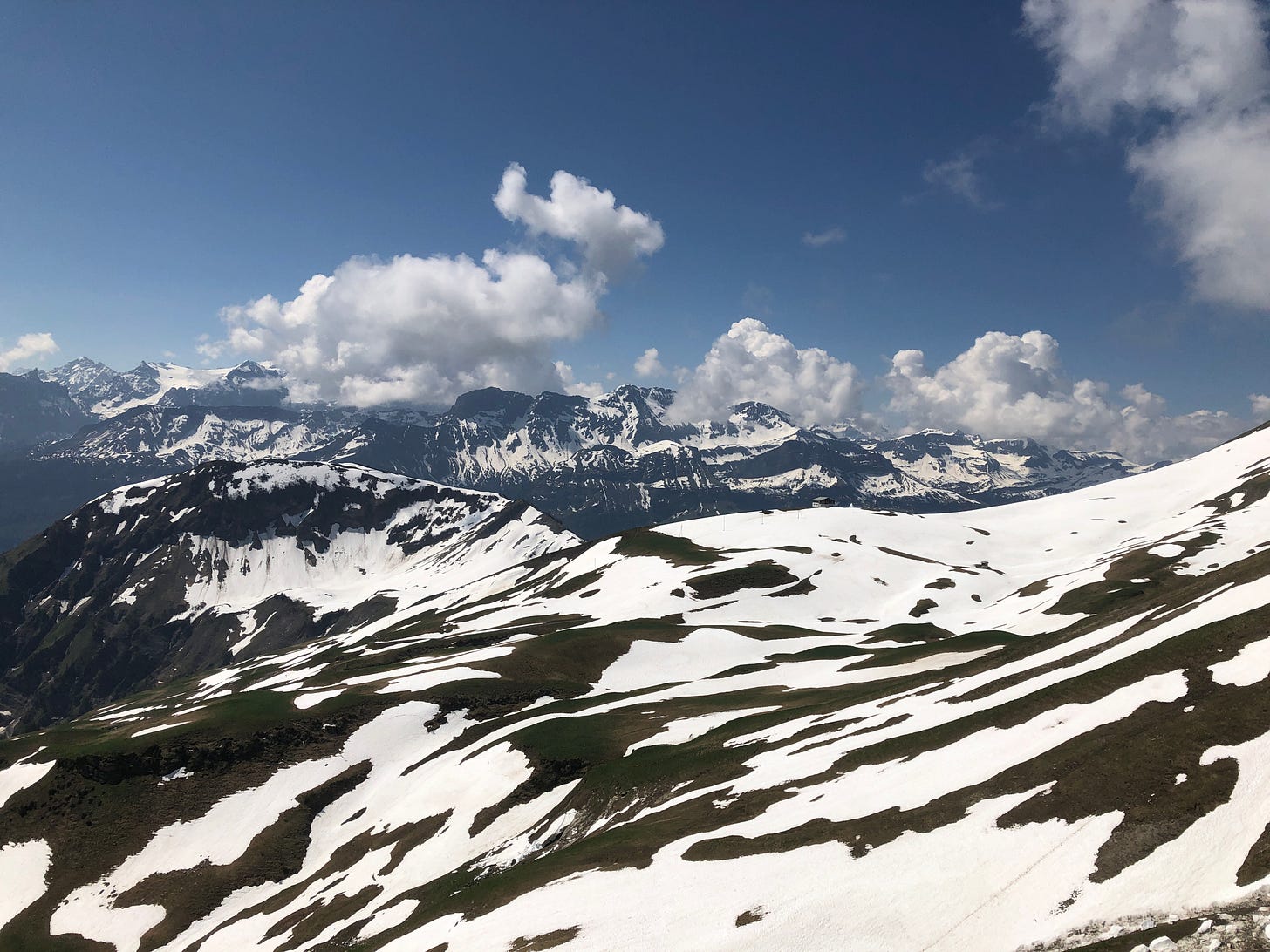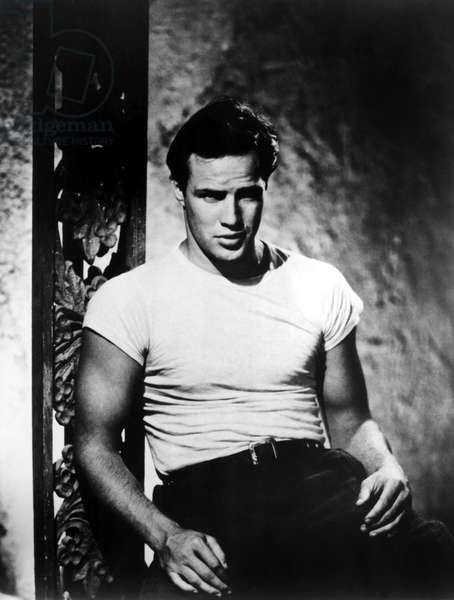I Have Always Depended on the Kindness of Strangers
On the Fleeting Encounters That Touch Our Lives
Note: The Happy Wanderer summer book club will begin in a couple of weeks, on July 21. The Turn of the Screw, by Henry James, is quite short (about 100 pages) but is famously ambiguous. Let’s solve the mystery together! What the heck is going on in this book? Do you think the ghosts are real, or are they a figment of the Governess’s imagination? What is your opinion of the children, Miles and Flora? The book is in the public domain and is available here for free, online, or you can find it in your local library or bookstore. And if you’re not interested in reading the book, or you don’t have time, no worries! I will introduce the first post with a brief plot summary so you can still enjoy the conversation. Happy reading! And now on to this week’s post.
I am aware of the tragic irony in the line I’m borrowing for my title. Poor Blanche Dubois may have depended on the kindness of strangers, but that plan didn’t work out so well for her.
Nonetheless, I think that depending on the kindness of strangers is the way to bet. In our travels, we will encounter strangers who share their stories with us, teach us compassion, lend us a helping hand, make us laugh, and buoy us up. Even better, an act of kindness is often trivial for the person performing the act, but so meaningful to the recipient. I have found that when I recall these fleeting encounters with kind strangers, I feel happy, grateful, and more capable of passing kindness along to the strangers I meet. So here are a few quick stories of kind strangers and the lessons I took away from them. I would love to hear your stories too!
The Love Bus Driver. When I was in college in Chicago, the Jeffrey Express bus route was our lifeline—it ran from our remote neighborhood straight downtown where all the action was. Shortly after moving into my dorm, I began hearing rumors about the Love Bus, driven by an odd but sweetly appealing man who would greet every passenger with a hearty “Welcome to the LOVE BUS!” Every ride was a festive occasion. The driver festooned the bus with construction-paper chains and hearts, and he kept up a steady, cheerful patter that featured weather reports, songs, and occasional announcements of the time. I particularly enjoyed it that while everyone on the bus pretended to be too cool and blasé to pay attention to the driver, if you looked around, you would see tiny, secret smiles on everyone’s faces. Much as we might pretend otherwise, we are not too cool to enjoy some goofy humor, nor should we be!

Sophie.1 Just last week, I met a remarkable woman, the upstairs neighbor of a friend. Sophie invited us to her apartment, where she shared her devastating story with me: During a single year her husband left her, her daughter died, and she was diagnosed with cancer. Incredibly, while she was telling this heartbreaking story, she was able to smile. She lives alone in a spartan apartment now and has relinquished ordinary life, almost like a Buddhist nun. I think that some experiences are so catastrophic that they rupture our lives, making it impossible to continue on the same path. We may still be ok after our lives go sideways, but it’s an askew, utterly changed, terrible beauty.
Sophie’s experience reminds me that much as our culture loves to tell stories of people who bounce back after a tragedy, these stories are the exception. The maxim “What doesn’t kill you makes you stronger” is often untrue, and, even worse, it heaps guilt on those people who respond to devastation by, well, being devastated. We ought to honor all responses to trauma and loss, not just those with happy endings.
Owen. Every summer when I was in college I would temp to earn spending money. One of those temp jobs was working at a concession stand for a week at the Metrodome, then the home of the Minnesota Twins. The pace was frenetic, and the work was physically demanding. Out of necessity I got very quick at adding up prices in my head and calling out the totals for everyone (we had cash boxes instead of cash registers for some reason). One of the other workers, Owen, thought it was amazing that I could add the prices up so quickly, and he praised me for it. He also helped me with the (literal) heavy lifting. We had to stay late to close out the stand one night, and we got to talking. Owen told me he had wanted to go to college but was too poor, so he joined the Marines instead, was sent to invade Grenada, and was shot in combat. (He showed me the scar.) Owen’s pseudonym comes from the poet Wilfred Owen, who inveighed against “The old Lie: Dulce et decorum est / Pro patria mori.” Or, put another way, there are better uses for our young people than stopping a bullet.
Kirby Puckett. The same night that Owen and I closed out the concession stand, I met Kirby Puckett. I am horribly nearsighted, but back then I was too vain to wear my glasses. So after closing, I wandered around the darkened, empty halls of the Metrodome, completely incapable of finding an exit. Fed up, I resolved to myself, “That’s it! No matter what, I am walking through the next door I see!” Which I did, and was confronted by a room full of men sitting around on sofas. “Huh. Weird,” I thought (remember, I couldn’t really see). I marched right through the room to the exterior door, where a man was just heading out. He said, “Here, miss, let me get that for you.” He held the door for me, and we walked outside together, into an enormous crowd of kids screaming “KIRBY PUCKETT!!” That’s right, I had just blundered obliviously through the Twins players’ lounge. No matter how important we are, we can always help someone find a way out. (And also, if we need glasses, we should wear them!)
Alma. When my kids were little, we liked to hang out at our local Starbucks, where we would chow down on cookies (them) and caffeine (me). Once, when the kids were about two and four, my son got some cookie stuck in his throat and threw up everywhere. It was exactly as yucky as you are imagining. Before I could even fully register and respond to the wreckage, Alma appeared. Glamorously dressed and beautiful, she was exactly who I would not have expected to be helpful in this situation. But she was! She brought me napkins, ran to get rags and spray cleaner, and mopped everything up, all the while saying, “Don’t feel bad! These things happen!” It may be a cliché, but it is nonetheless true that appearances are deceiving and our judgments about people are often wrong. Or, to quote a line from one of my favorite films, The Philadelphia Story, “The time to make up our minds about people is never.”
Gabriel. On a hike last year, I had a guardian angel. At the summit of the hike, I caught up to Gabriel, a charming Swiss man who not only praised my speed but also, flatteringly, thought I was half his age rather than 90 percent of it. We decided to join forces for the remainder of the hike. We had to tightrope-walk across a narrow ridge with sheer cliffs on either side, but Gabriel’s conversation kept me distracted. We then had to angle down across a steep and harrowing snowy field, but Gabriel went ahead and stomped footprints for me to step in.

We arrived at a restaurant, and Gabriel, scandalized that I had never tried real Swiss fondue, treated me to lunch and a beer. After lunch, the path was downhill on a paved road, which gave us the opportunity for conversation about topics ranging from how we met our spouses to our kids to choral singing (both of us were choral singers—what are the odds?). Near the end of the hike, Gabriel opened up to me about his daughter’s struggles with anorexia. She nearly died several times, spent months in the hospital, and still suffers from this horrible affliction. Gabriel told me that he was sharing his family’s story because he wanted me to know that even rich, white men are often coping with tremendous fear and sadness, and we should keep that in mind when we are tempted to dismiss other people as “privileged.”
The strangers we encounter in our travels do so much for us: They point the way, show us we can overcome a challenge, offer a leg up, entertain us, and provide insight into the lives and struggles of our fellow humans—and sometimes they buy us a beer too. Prost!

How about you, readers? Has a brief encounter with a stranger touched your life? Please share your stories in the comments!
The Tidbit
The other day, in an online comment thread, I was trashing the movie Harold and Maude, and someone who loves the film responded to my critical remarks with generosity instead of rancor. Knowing that I like the movie’s soundtrack, she shared this wonderful cover of “Peace Train” with me. When we encounter negativity online, we don’t have to argue back. I hope you will enjoy this cover as much as I did.
With the exception of Kirby Puckett, every name in this essay is a pseudonym, either to protect the person’s privacy or because I can’t remember their name or never learned it.







Ah--the Love Bus. I remember it fondly. As you know from reading my new book HEALING, I and my family are completely indebted to a kind man in a pickup truck who saved us in rural PA when biblical rain had washed out the bike path between Cumberland, MA and Washington, D.C. He's immortalized in my nonfiction book, but it still bothers me that I don't know his name. Blanche Dubois aside, we do all depend on the kindness of strangers. As a home hospice nurse, I've been that "stranger," trying to always put more good in the world than I took from it.
These are such wonderful stories! You’ve already heard mine about the German train employee who bent the rules to let me put my feet up when I was sick and trying to get home.
You also made me remember that when I lived in Chicago, there was a driver on the red line who always gave a morning speech on his way downtown - he’d tell us the weather in a smooth, radio-host voice, wish us all a good day, and finish with, “And, students on the train, always remember: Work hard, study smart, and you’ll go far!” Same thing you described: Everyone still staring at their phones or newspapers but also, smiling just a tiny bit.